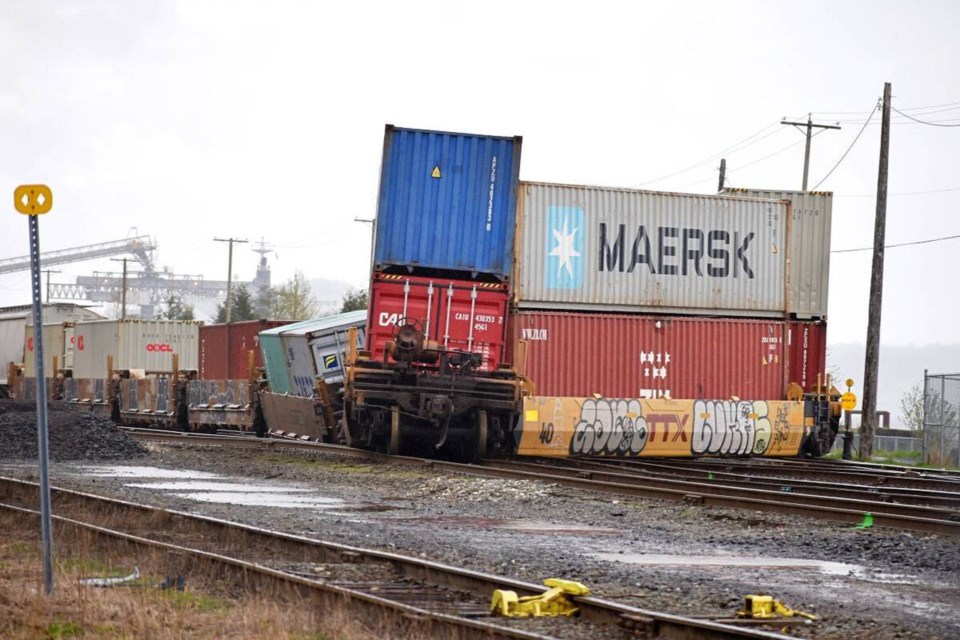Port Edward district councillor, James Brown, welcomes new rail safety measures released by the federal government but says more can be done to improve the district’s preparedness in an emergency.
The new measures are being implemented to prevent and respond to rail-related fires, federal Minister of Transport Omar Alghabra announced on July 5. The new steps are part of the government’s efforts to adapt to climate change and will be in effect during April 1 to October 31 fire season.
As of midnight on July 10, railway companies will have to reduce train speeds and do more track inspections when the outside temperature is more than 30 C.
They will also be required to check trains locomotive exhaust systems more often for debris that could cause a fire and implement a national fire risk reduction plan. This includes monitoring fire risk, reducing activities that could spark a fire and responding to fires when detected.
“I’m from Port Edward. I care about my community,” Brown said. “… it concerns me how close the rail line is and the amount of increased traffic that we get. Lots of it is petrol and flammable stuff, and [we’re] going to only get more coming.”
Brown has been an active advocate for improving rail safety in the district. He said the new measures would help, but he is still concerned that the coastal communities are not prepared to respond to an emergency.
The Port Edward volunteer fire department has received training to respond to railway emergencies. Brown said they would try to do as much as possible, but a regional response team needs to be closer. The CN emergency response team is located in Prince George, so it will take some time for them to respond with assistance if local fire crews require.
“A quick response is the essence in some circumstances and situations, especially with all these hazardous materials and flammables coming… Don’t get me wrong, I like to see the economy improve, and businesses come here but not at the expense of our community’s and our environment’s safety,” Brown said.
The district councillor also thinks the Port Edward fire department needs additional gear and equipment to react to a fire properly. Brown would like to see the district equipped with long-distance water cannons and a fireboat for the harbour. He believes CN should help with purchasing these items.
Federal transportation critic Taylor Bachrach, MP for Skeena Bulkely, agreed that the new measures are essential. He said he felt it was positive to see the federal government putting additional precautions in place. However, whether these safeguards are sufficient remains to be seen.
Bachrach is also a member of the Standing Committee on Transport, Infrastructure and Communities, which released a report of rail safety recommendations on June 2.
While the report didn’t focus on climate-related fire risks, Bachrach is optimistic about the government addressing the concerns. He said they are showing that it is possible to implement similar proactive approaches to other rail safety concerns issues such as fatigue management and the transport of dangerous goods.
“Our real concern is fires that involve dangerous goods being shipped by rail. Many of these concerns remain unaddressed. A brush fire that started on the side of the track is one thing. A car full of liquid propane that catches fire is an entirely different situation,” Bachrach said.
Bachrach would like to see northwest communities rally together to assess the risks and put pressure on the federal government to address some of the more significant concerns.



